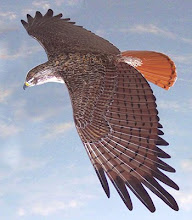Prisoners Of The Sand (5)



fifth of six
The wind that shrivels up a man in nineteen hours was now blowing out of the west. My gullet was not yet shut, but it was hard and painful and I could feel that there was a rasp in it. Soon that cough would begin that I had been told about and was now expecting. My tongue was becoming a nuisance. But most serious of all, I was beginning to see shining spots before my eyes. When those spots changed into flames, I should simply lie down.
The first morning hours were cool and we took advantage of them to get on at a good pace. We knew that once the sun was high there would be no more walking for us. We no longer had the right to sweat. Certainly not to stop and catch our breath. This coolness was merely the coolness of low humidity. The prevailing wind was coming from the desert, and under its soft and treacherous caress the blood was being dried out of us.
Our first day's nourishment had been a few grapes. In the next three days wach of us ate half an orange and a bit of cake. If we had anything left now, we couldn't have eaten it because we had no saliva with which to masticate it. But I had stopped being hungry. Thirsty I was, yes, and it seemed to me that I was suffering less from thirst itself than from the effects of thirst. Gullet hard. Tongue like plaster of Paris. A rasping in the throat. A horrible taste in the mouth.
All these sensations were new to me, and though I believed water could rid me of them, nothing in my memory associated them with water. Thirst had become more and more a disease and less and less a craving. I began to realize that the thought of water and fruit was less agonizing than it had been. I was forgetting the radiance of the orange, just as I was forgetting the eyes under the hat-brim. Perhaps I was forgetting everything.
We had sat down after all, but it could not be for long. Nevertheless, it was impossible to go five hundred yards without our legs giving way. To stretch out on the sand would be marvellous--but it could not be so.
The landscape had begun to change. Rocky places grew rarer and the sand was now firm beneath our feet. A mile ahead stood dunes and on those dunes we could see a scrubby vegetation. At least this sand was preferable to the steely surface over which we had been trudging. This was the golden desert. This might have been the Sahara. It was in a sense my country.
Two hundred yards had now become our limit, but we had determined to carry on until we reached the vegetation. Better than that we could hope not to do. A week later, when we went back over our traces in a car to have a look at the Simoon, I measured this last lap and found that it was just short of fifty miles. All told we had done one hundred and twenty-four miles.
The previous day I had tramped without hope. Today the word "hope" had grown meaningless. Today we were tramping simply because we were tramping. Probably oxen work for the same reason. Yesterday i had dreamed of a paradise of orange trees. Today I would not give a button for paradise; I did not believe oranges existed. When I thought about myself I found in me nothing but a heart squeezed dry. I was tottering but emotionless. I felt no distress whatever, and in a way I regretted it: misery would have seemed to me as sweet as water. I might then have felt sorry for myself and commiserated with myself as with a friend. But I had not a friend left on earth.
Later, when we were rescued, seeing our burnt-out eyes men thought we must have called aloud and wept and suffered. But cries of despair, misery, sobbing grief are a kind of wealth, and we possessed no wealth. When a young girl is disappointed in love she weeps and knows sorrow. Sorrow is one of the vibrations that prove the fact of living. I felt no sorrow. I was the desert. I could no longer bring up a little saliva; neither could I any longer summon those moving visions towards which I should have loved to stretch forth arms. The sun had dried up the springs of tears in me.
And yet, what was that? A ripple of hope went through me like a faint breeze over a lake. What was this sign that had awakened my instinct before knocking on the door of my consciousness? Nothing had changed, and yet everything was changed. This sheet of sand, these low hummocks and sparse tufts of verdure that had been a landscape, were now become a stage setting. Thus far the stage was empty, but the scene was set. I looked at Prevot. The same astonishing thing had happened to him as to me, but he was as far from guessing its significance as I was.
--Antoine de Saint-Exupéry (from "Wind, Sand and Stars")
Solomon Temple and The Tabernacle (top)
Palisades Canyon (middle)
beach at Granite Rapid (below)


<< Home